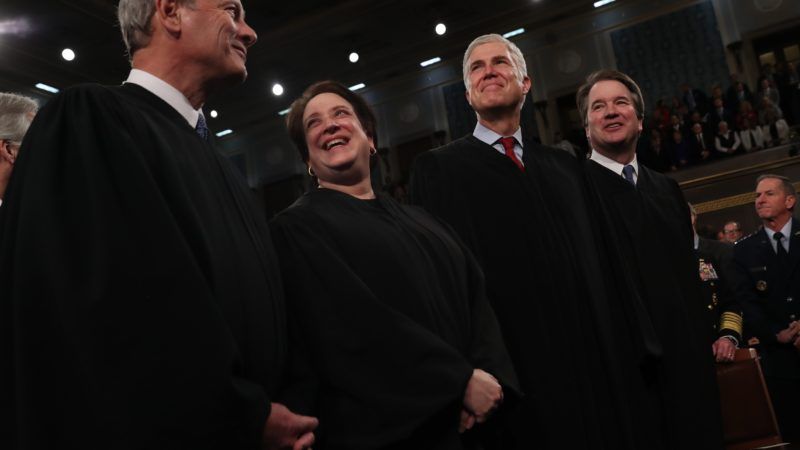Is Congress Entitled to the Supreme Court's Deference?
SCOTUS is the least democratic branch. Is that a bad thing?

University of California Berkeley law professor Jonathan Gould and Columbia University law professor Olatunde C.A. Johnson have raised the alarm about what they see as a scary new threat in American politics. "The past decade," they write in The Atlantic, "has witnessed a dangerous trend: a Supreme Court that expresses deep suspicion of Congress's competence and motives."
Gould and Johnson point to a few recent cases as evidence, including Seila Law v. Consumer Financial Protection Bureau (2020), in which the Court declared the single-director structure of the congressionally created Consumer Financial Protection Bureau to be unconstitutional. According to their argument, the Supreme Court has no business second-guessing these sorts of statutory and regulatory schemes designed by Congress. They also fault the Court for acting in a way that undermines the ostensible will of the majority. "Congress's members are far more representative of the American people than are the Supreme Court's nine justices," they write. "In failing to trust Congress, the Court gives greater weight to its own judgment than that of the more democratically accountable Congress."
Surprisingly, they fail to mention United States v. Windsor (2013), the landmark gay rights ruling in which the Supreme Court invalidated a central component of the 1996 Defense of Marriage Act, a federal law that was duly passed by Congress with broad bipartisan support. It seems to me that any principled case for greater judicial deference to "democratically accountable" lawmakers would necessarily also have to find fault with the Court's decidedly non-majoritarian approach in Windsor. Perhaps Gould and Johnson will clarify that they oppose Windsor too.
Gould and Johnson are also worried about the jurisprudence of Justice Neil Gorsuch. Specifically, they fret about Gorsuch's "influential dissent" in Gundy v. United States (2019), in which he "sought to limit Congress's power to delegate authority to federal agencies."
At issue in Gundy was the Sex Offender Registration and Notification Act of 2006 (SORNA), a federal law which, among other things, requires convicted sex offenders to register, check in periodically in person, and share personal information with the authorities.
The law also said this: "The Attorney General shall have the authority to specify the applicability of the requirements of this subchapter to sex offenders convicted before the enactment of this chapter." In other words, Congress essentially gave the attorney general free rein when it came to deciding the fate of the estimated 500,000 individuals whose convictions predate SORNA's passage. Gorsuch's dissent in Gundy faulted his colleagues in the majority for letting Congress "hand off to the nation's chief prosecutor the power to write his own criminal code."
Gould and Johnson may not like the sound of it, but if Gorsuch's dissent had carried the day, Gundy would have gone down as a win for criminal justice reform advocates, who have long warned about the dangers of letting law enforcement officials define the scope of their own powers.
